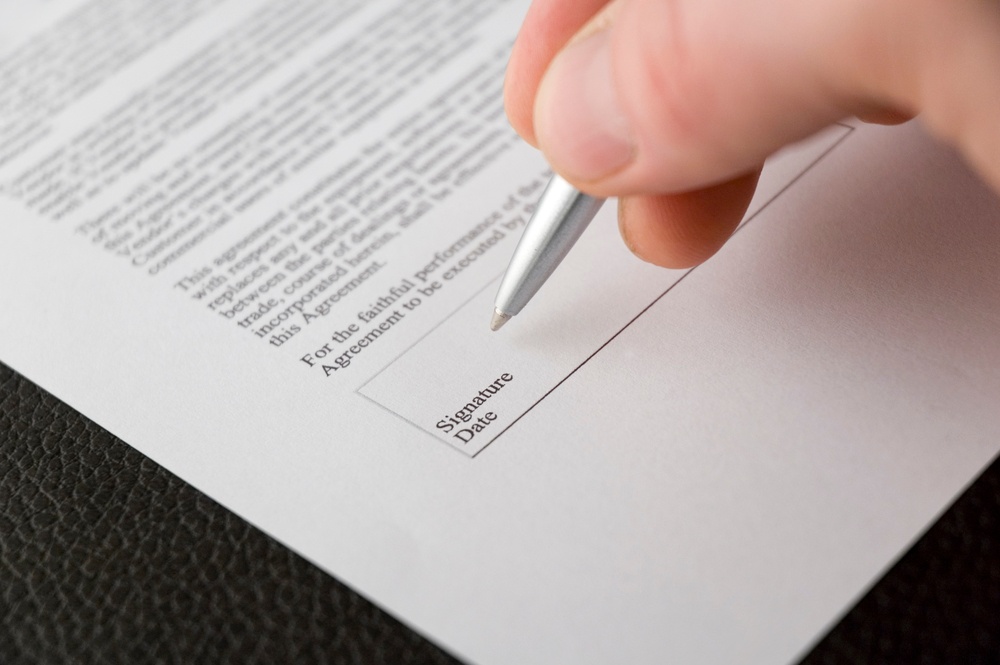 To own a property, you need specific real property documents to support your rights to the property. Real property includes any structures on the land, any person’s rights and interests related to the property, and natural parts of the land. As a property owner, it is important to understand what documents you need to verify your ownership.
To own a property, you need specific real property documents to support your rights to the property. Real property includes any structures on the land, any person’s rights and interests related to the property, and natural parts of the land. As a property owner, it is important to understand what documents you need to verify your ownership.
Why Do I Need Proof of Ownership?
Proof of ownership is how you claim the rights to a certain property. In the late 1800s, proof of ownership expanded from a local matter to a national one, when the federal government created specific regulations for the process. By making it national, the process became simpler, and gave property owners an easy way to prove their rights.
Warranty and Quitclaim Deeds
A warranty deed is one type of proof of ownership; it shows the name of the owner and gives a brief description of the property. The previous owner or party granting you ownership signs the warranty deed, showing your rights to the property.
A quitclaim deed is the other main type of property deed. Warranty deeds are the most common property deed for people to have but you can also have a quitclaim deed, which also proves ownership but can express that only the current owner has rights over certain parts of the property.
Bill of Sale
A bill of sale is another document that can serve as proof of ownership; it comes from the previous owner and shows the transfer of ownership. The bill of sale is essentially the receipt for the sale. It usually serves as the primary proof of ownership until the deed can be officially notarized.
Recorder’s Office
When you get ownership interest in land, you should record the documents and deed at the local recorder’s office so that the information is available to the public. Because it is a public record, you can purchase copies of the record at any time. The record can serve as proof of ownership.
Deed of Trust
Some states require lenders to create a deed of trust when someone receiving a loan buys property using a mortgage. The trustee holds the property deed until the property owner can pay off the mortgage debt. The land owner can get a copy of the deed of trust, even if they have not yet finished paying off the debt. Though the deed of trust shows that the borrower does not have full ownership, it is proof that they will have ownership when they complete payment of the mortgage. A copy of a deed of trust is also available at the recorder’s office.
Mortgage Note and Satisfaction of Mortgage Letter
Some states have lenders create mortgage notes to secure a debt. The property owner gets the title to the property during closing and the person selling the property transfers ownership without needing to use a deed of trust. A mortgage note indicates that you own a property that has a mortgage lien.
You can receive a satisfaction of mortgage letter when you finish paying off the mortgage debt. You can use it as proof that you own property.
Losing a Property Deed
If you lose your proof of ownership, you must get new documentation as soon as possible. While losing the property deed does not mean you lose the property, it can cause complications with your rights. You can get a new copy of the deed at your local county clerk’s office and have it notarized.
Original Owner Claim
The process of establishing proof of ownership involves a series of steps. It also depends largely on the type of property and your relationship to the person claiming it. If you are the original owner and have been reported as the property owner, there are certain documents you must provide to prove it. Some of the documents include:
- Copy of driver’s license or another photo ID
- Copy of proof of Social Security number
- Proof of association with the property’s address such as a utility bill or driver’s license with that address
- Proof of business dealings between you and the reporting company
General Claim
If you are claiming on behalf of a minor, are a guardian or trustee of the reported owner, or the heir of the deceased property owner, you must provide documents such as:
- Driver’s license and proof of Social Security number
- Proof of identity and ownership from the reported property owner
If there is more than one owner, each person much provide their personal information. Someone claiming on behalf of a minor must show the minor’s birth certificate. A guardian must have a copy of the legal letters of ownership. Heirs must have a copy of the deceased person’s death certificate, will, letters of administration, current Letters Testamentary, or copy of the trust agreement.
Proof of Ownership for Section 8 Housing Voucher Program
The requirements for Section 8 of the housing voucher program are slightly different. You must have a warranty deed with the county recorder that includes instrument number and stamp. The deed must have the specific address of the unit. You also must have a current copy of the assessor’s property tax statement with the property owner’s name and specific address. The deed cannot be handwritten.
Unmarried Property Co-Owners
If you are getting a property with someone to whom you are not married, be sure to get everything in writing. Without being married, you do not have certain rights that could become extremely important down the line. For example, if one of you dies and you are not married, the property may legally go to the next of kin without you having any say. Sometimes a domestic partnership agreement can be enough to support the claim, but check to be sure before you depend on it to retain your rights.
Other Co-Ownership
Another type of co-ownership is joint tenancy with right of survivorship. In this type of ownership, you only need a death certificate to remove someone from the deed after they have died. States that are “community property” states, however, pass on property according to an estate plan or state law.






















